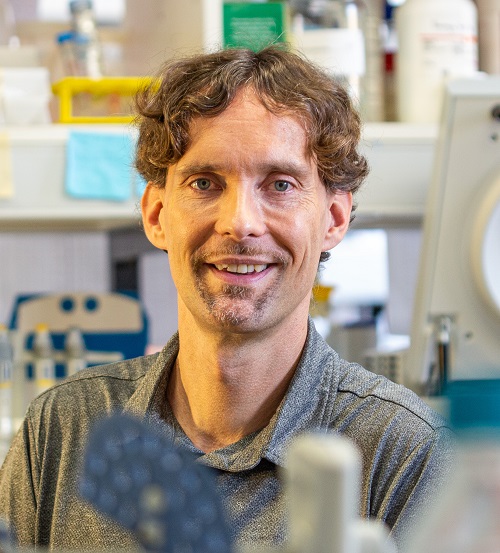Plastic production has been increasing over the past decades and is estimated to reach over one billion tons per year in 2050. However, recycling rates have remained low globally and nationally.
UQ-led research has found that the darkling beetle, commonly known as superworms, can eat through polystyrene, thanks to bacterial enzymes in their gut. Superworms fed a diet of just polystyrene not only survived, but even had marginal weight gains. This suggests the worms can derive energy from the plastic, most likely with the help of their gut microbes.
At this month's BrisScience, UQ's Dr Christian Rinke will explore how this research could lead to large-scale biological recycling, through enzymatic or microbial degradation, in recycling plants around the globe.
We'll be serving up delicious light refreshments and drinks after the presentation.
Watch the recording
Meet the presenter
 Dr Chris Rinke is an ARC Future Fellow and Senior Lecturer at the Australian Centre for Ecogenomics (ACE) at The University of Queensland, Australia. He received his PhD in Zoology from the Marine Biology Department at the University of Vienna, Austria and has since shifted his focus to the microbial world.
Dr Chris Rinke is an ARC Future Fellow and Senior Lecturer at the Australian Centre for Ecogenomics (ACE) at The University of Queensland, Australia. He received his PhD in Zoology from the Marine Biology Department at the University of Vienna, Austria and has since shifted his focus to the microbial world.
His research interests include the phylogeny, taxonomy and ecology of free-living and symbiotic bacteria and archaea. He focuses on the majority of microbes, which elude current culturing efforts. This so-called "microbial dark matter" can only be explored with culture-independent approaches, and Chris has pioneered methods in high throughput single-cell genomics, the separation and sequencing of single bacterial and archaeal cells, and metagenomics, the direct sequencing of DNA from environmental samples.
Currently, the Rinke lab uses a range of "omics" techniques to study the phylogenetic and metabolic diversity of microbial dark matter, to investigate bacterial plastic degradation, describe microbial and viral communities in coastal waterways, such as the Brisbane River, explore microbial compositions in shallow coastal and deep-sea subsurface sediments, characterise insect microbiomes, and to identify the main players in terrestrial hot springs.
About BrisScience
BrisScience is a monthly lecture series that brings science out of the labs and to the people, making it accessible to all – from scientists, to scientists-at-heart.
Run by The University of Queensland, BrisScience has been delivering engaging lectures on diverse topics from local and international scientists for over a decade.
BrisScience speakers are leaders in their given fields and deliver dynamic presentations based on cutting-edge research.
The University of Queensland has been running BrisScience since 2005, bringing the best and brightest scientific minds to the people of Brisbane – from early career researchers to Nobel Laureates!
| Time | 6:30pm to 7:45pm (light refreshments 7:45-8:30pm) |
|---|---|
| Venue | Auditorium 1, State Library of Queensland, Stanley Place, South Bank |
| Cost | Free - Eventbrite ticket required |
Subscribe
Sign up to be on our mailing list and be the first to know the latest BrisScience news, events and announcements!
The mailing list is used only to advertise upcoming BrisScience talks. If at any time you decide that you no longer wish to receive the emails, you can unsubscribe from the bottom of your latest email.




